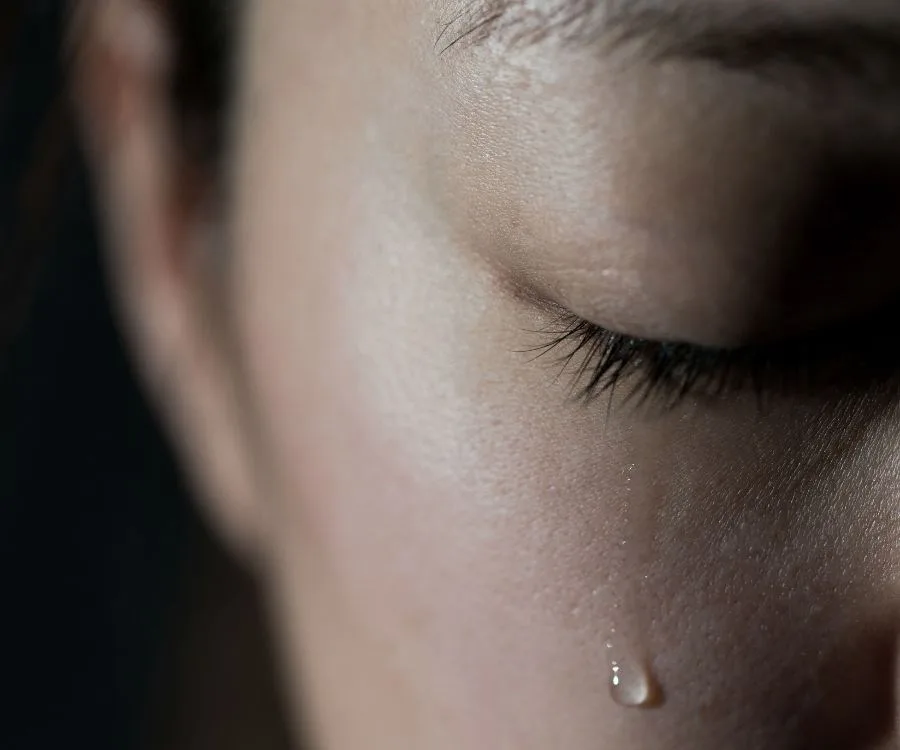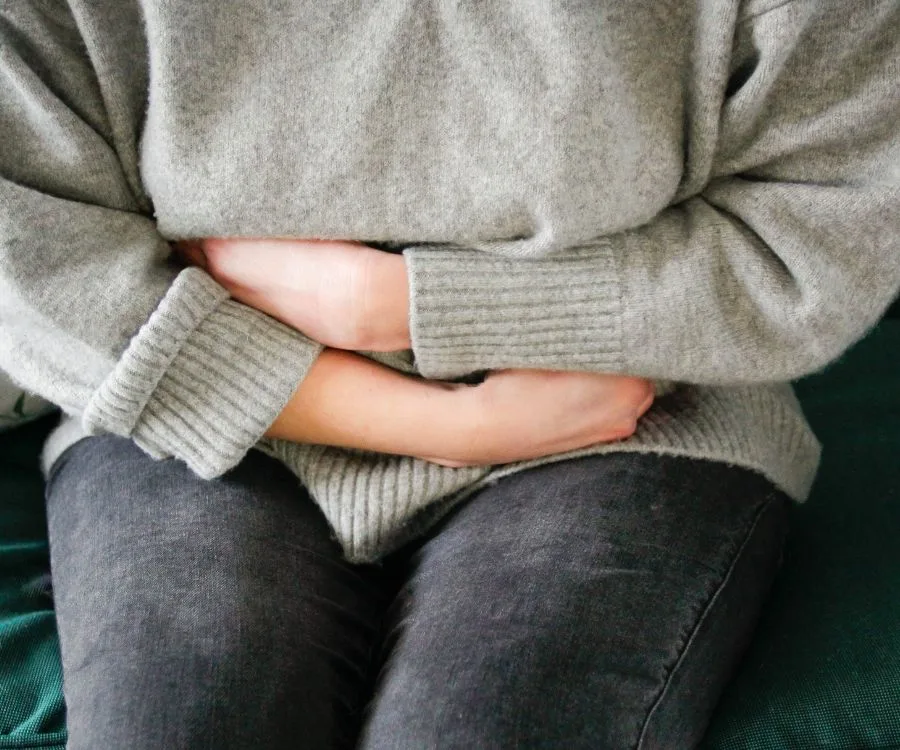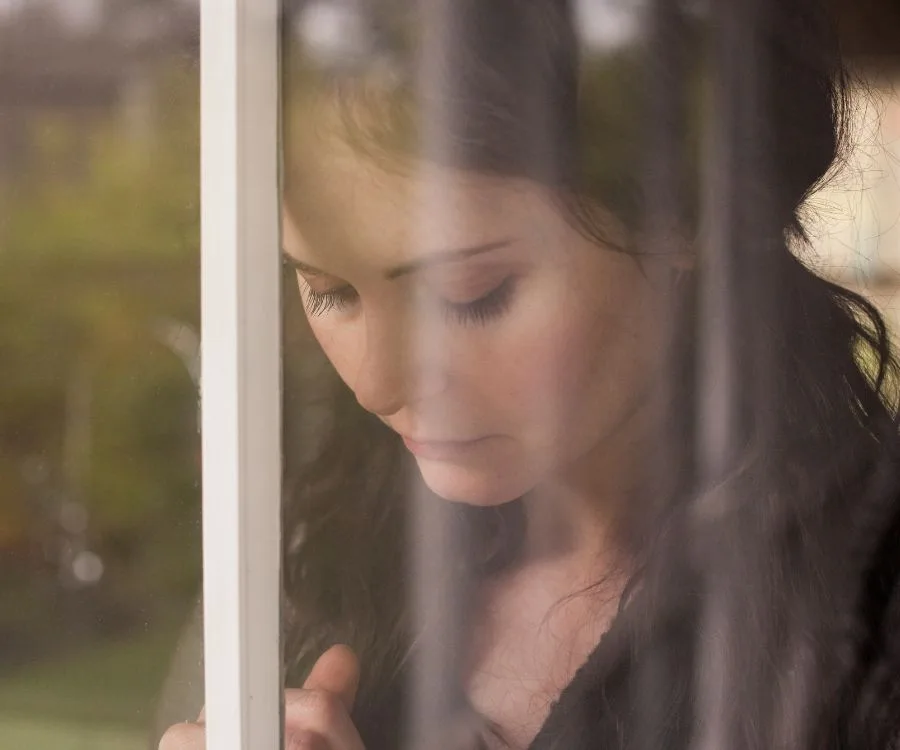Most people with a uterus will have experienced the symptoms of PMS throughout their lives: a change in mood or growth in anxiety, generally feeling uncomfortable and irritable, wanting to eat the entire fridge and never being able to sleep.
However, there is a subsect of those people who may be experiencing something more intense than just PMS.
It’s called PMDD, which stands for premenstrual dysphoric disorder, a kind of extreme form of PMS.
“Dysphoric means a change in mood and often with PMDD it’s like a severe form of PMS. It’s characterized with irritability, which is excessive, irrational outbursts of anger, it can be characterized by low mood, changes in sleep: anything really that you experience with PMS, it just tends to be on the severe side,” explains specialist GP and founder of Rose Healthcare Dr. Sam Saling.
As the feelings with PMDD are more severe, it impacts the people who experience it more in other parts of their life, especially personal relationships, and work. While PMS is widely experienced, PMDD impacts only 3-8 per cent of women, according to leading women’s health experts like Jean Hailes.

While some professionals have tried to characterise PMDD as a mental health condition (considering it includes the feelings of anxiety, depression and even for some, suicidal ideation), there’s been a lot of push back against this categorisation.
It’s not surprising, given that for too long women were labelled as ‘crazy’ and ‘neurotic’ by the wider medical industry.
For Dr. Saling, while PMDD can present similarly to a mental illness, and there is overlap, she doesn’t think it should be termed a ‘mental illness’.
“With severe cases of PMDD it absolutely can look like a depressive episode or severe anxiety, however, you’ve got to link it in with the time frame,” she explains.
“Often, these women only experience these ‘mental health-like’ symptoms or mental distress right before their period…it absolutely goes away when they start to bleed.
“I don’t tend to characterize it the same way [as mental illness] because there’s clear factors that definitely differentiate it,” she adds.
However, it is important to note that there are higher rates of PMDD in those who already experience organic depression and anxiety in their day-to-day lives.
Why Do Women Get PMDD Not PMS?

While many of us are familiar with the impacts of PMS, why is it that some women are experiencing it in a much more extreme way?
Dr. Saling explains that as women cycle through hormones each month — luteinizing hormone, follicle-stimulating hormone, and the female sex hormones estrogen and progesterone — the body responds to the changing levels.
“The theory is that it interferes with neurotransmitters in your brain. To be honest, the evidence is limited,” she says.
“A lot of us GPs (and obstetricians and endocrinologists) think some people tend to be more sensitive to hormone changes and, you know, other chemicals in the body.”
Is It Hard To Get Diagnosed With PMDD?
While Dr. Saling says that for lots of GPs are aware of and diagnose PMDD, there’s no denying that women’s health problems have been overlooked in decades gone by.
“GPs who work with women and do a lot of women’s health, for us, it’s part of the broad spectrum of everyday work,” she says. “I think in the past, no, it wasn’t part of standard diagnoses you’d see in practice.”
It doesn’t help that there are no tests for PMDD, so diagnosis is usually made by watching and monitoring symptoms over a period of three cycles.
According to the experts at Jean Hailes, it’s essential to start tracking your symptoms if you suspect you might be suffering from PMDD.
“You can use an app or a journal to track symptoms,” says Jean Hailes naturopath, Ms Sandra Villella. “Tracking them under different categories will help you notice certain patterns. For example, you might ask ‘do I have generalised anxiety, or is it that I’m just anxious in the pre-menstrual phase?’
“By definition, symptoms need to occur on one or more of the five days before menstruation, appearing in the previous three menstrual cycles, and have to dissipate within four days after the start of menstruation. If symptoms continue, then it’s probably not PMDD.”
What To Do If You Think You Have PMDD?

Dr. Saling is a GP and calls anyone who suspects they might be experiencing PMDD to contact their trusted practitioner for assistance.
“There’s definitely medical therapies that help,” she says. “From a lifestyle point of view certain supplements you might read about, but evidence is limited. Exercise helps, eating well helps, healthy diet.”
So, that’s your doctor’s order to get some sunshine, fresh air, daily exercise, avoid stressors and reduce your alcohol intake.
There are also other drugs used for mental health that can help, and potentially even the oral contraceptive pill, so it’s worth talking to your GP about a treatment plan that can work for you.
The most important thing with PMDD is to know that you’re not crazy, and that there are things that can help reduce the impact it has on your life.
“[PMDD] definitely has a big impact,” explains Dr Saling. “It can range from relationship problems, work problems, interpersonal problems and internal distress that people don’t understand,” she explains.
“For people reading this and wanting to know: it’s completely normal to feel that way. There are things that we can all do to help, and they don’t have to feel alone.
“It is a recognized issue. It is a real thing. It’s not in people’s heads. Us doctors, as well as Allied Health, everyone is there to help, so they just need to read out and let us know.”
If you or someone you know needs help, phone Lifeline on 13 11 14 or the 24- hour Suicide Call Back Service 1300 659 467. In an emergency please call 000.
Mental health professionals are available 24/7 at the beyondblue Support Service – 1300 22 46 36 or via beyondblue.org.au/get-support for online chat (3pm-12am AEST) or email response.










